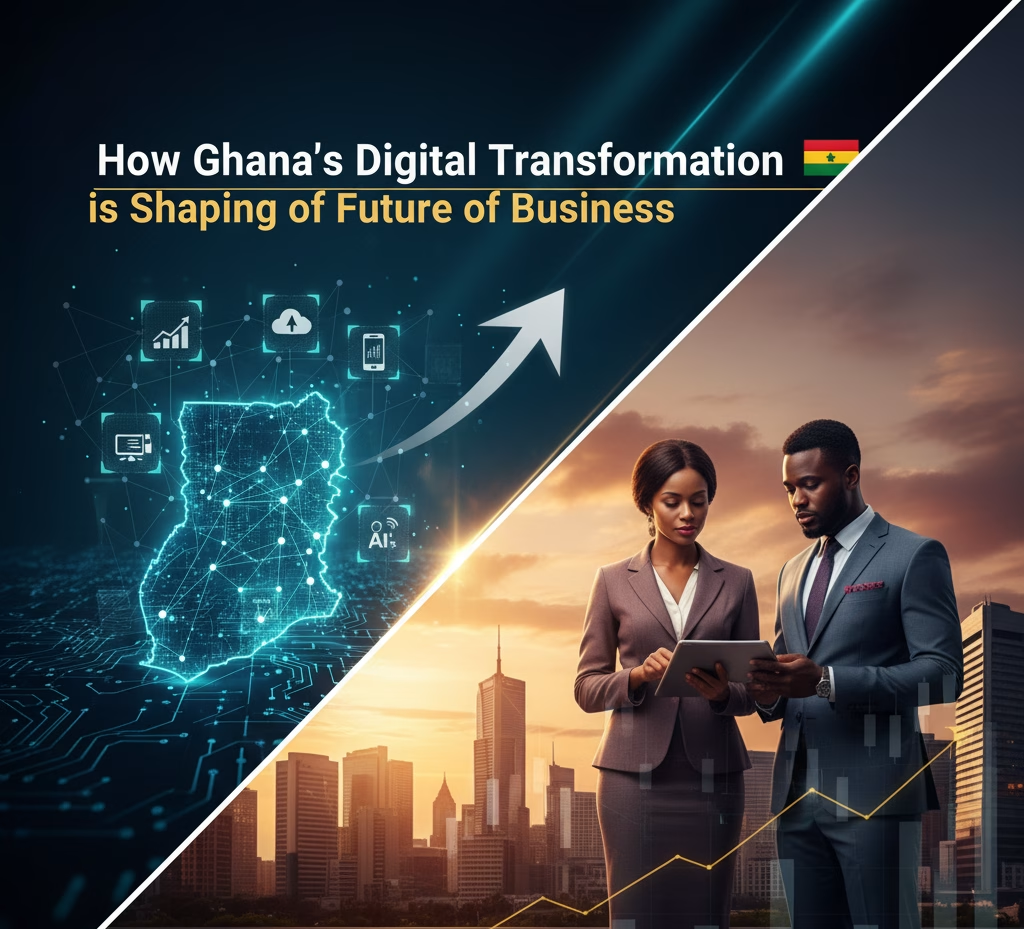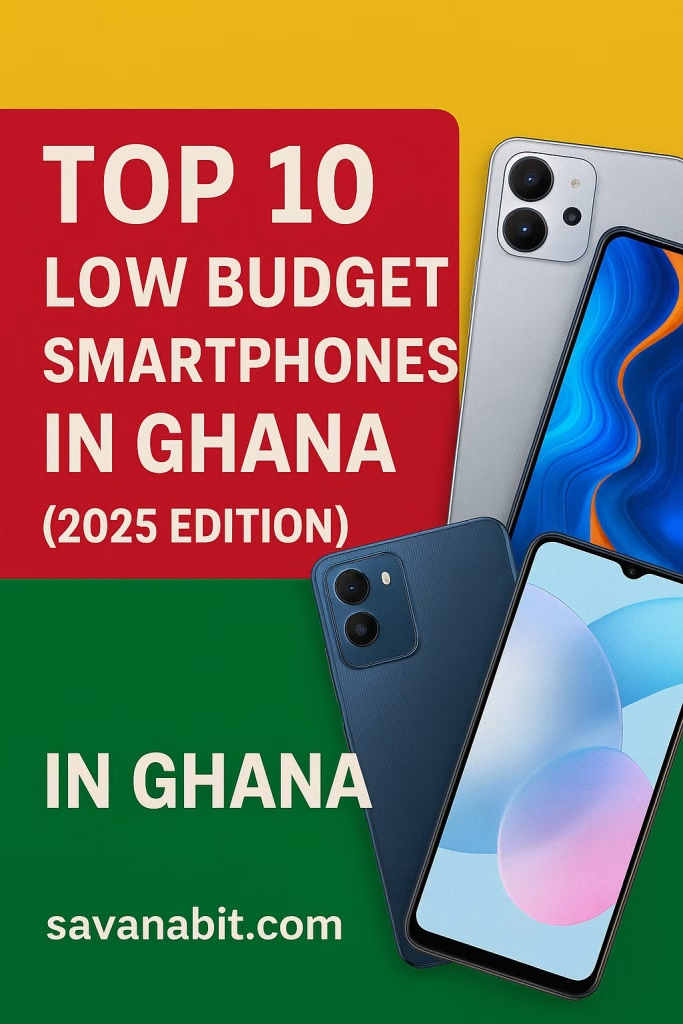Ghana is no longer on the sidelines of the digital revolution. In recent years, the country has made deliberate strides to place technology at the center of its economic and social agenda. With government-backed policies, rising internet penetration, and a youthful population eager to embrace innovation, Ghana is shaping a digital-first economy that could redefine business for decades to come.
The shift is not just about convenience. From identity systems like the Ghana Card to mobile-driven payments, artificial intelligence pilots, and new startup ecosystems, Ghana’s transformation carries long-term consequences for trade, governance, and global competitiveness. For entrepreneurs, investors, and small business owners, this is both a challenge and a historic opportunity.
Digital Identity and Business Efficiency
At the heart of Ghana’s digital transformation is the Ghana Card, a biometric national ID that has become a single point of access for financial services, healthcare, education, and government platforms. Businesses now use the card to verify customers faster, reduce fraud, and streamline onboarding.
Banks and Fintechs: Verification is faster, cutting the time needed to open accounts or access credit.
E-commerce companies: Vendors can trust buyers’ details, reducing fake orders and delivery risks.
SMEs: Small traders can secure loans more easily since their identity and transaction histories are traceable.
This integration creates efficiency in both public and private sectors, moving Ghana closer to a modern cashless economy.
Mobile Money and Cashless Commerce
Ghana’s mobile money penetration is among the highest in Africa, with platforms like MTN MoMo dominating daily transactions. Businesses across all levels—from street vendors in Accra to cocoa farmers in Ashanti—use mobile wallets for payments, savings, and transfers.
The ripple effects are significant:
Lower cash risks: Businesses face fewer theft issues with digital payments.
Financial inclusion: Rural populations now access digital credit and micro-insurance.
Cross-border trade: Fintechs are building solutions for regional payments, making Ghana a key hub in West Africa’s trade networks.
While mobile money has faced policy hurdles like the e-levy, its adoption continues to fuel the growth of Ghana’s digital economy.
Artificial Intelligence and Policy Readiness
In 2024, Ghana announced steps toward an AI Strategy, designed to promote responsible adoption of artificial intelligence across sectors. For businesses, AI represents new frontiers:
Retail and E-commerce: AI tools recommend products, optimize inventory, and forecast demand.
Agriculture: Farmers use AI-driven apps for weather predictions and pest management.
Healthcare: Telemedicine and AI diagnostics make care more accessible, especially in underserved regions.
The challenge remains building trust, ensuring ethical AI practices, and training local talent to operate these systems. Yet Ghana’s early positioning could attract foreign investment and regional partnerships.
The Startup Ecosystem and SMEs
Ghana’s startups have begun to attract international attention. With accelerators, venture capital inflows, and innovation hubs in Accra, Kumasi, and Tamale, the ecosystem is expanding.
Fintech leaders: Zeepay, Hubtel, and ExpressPay are changing how Ghanaians move money.
AgriTech ventures: Startups like Farmerline provide digital tools for farmers to access weather data, funding, and buyers.
E-commerce platforms: Companies are leveraging Ghana’s young internet population for fashion, delivery, and retail growth.
For SMEs, digital tools have lowered the cost of operations. Cloud services, accounting apps, and social media marketing help small enterprises compete in both local and global markets.
Innovation Hubs and Infrastructure Growth
The government’s partnership with private players is visible in plans for innovation hubs and tech cities. Ghana is investing in digital infrastructure to attract global technology companies and talent.
Fiber optic expansion: Increased internet coverage beyond major cities.
Innovation hubs: Spaces that connect startups with investors, mentors, and global networks.
Tech city projects: Multi-billion-dollar plans to create digital industrial zones in Accra and beyond.
These hubs not only create jobs but also foster a culture of innovation among Ghana’s youth.
Youth, Skills, and the Digital Workforce
Ghana’s population is young, with a median age of under 21. To equip this generation, initiatives such as the One Million Coders Programme are teaching digital skills in coding, design, data science, and AI.
Remote work potential: Skilled Ghanaians can work with global companies without leaving the country.
Entrepreneurship: Youth-led startups are reshaping industries from logistics to media.
Upskilling: Corporate partnerships with EdTech platforms ensure workers adapt to new technologies.
This focus on human capital could make Ghana one of Africa’s most competitive digital labor markets.
Cybersecurity and Risks
Digital growth comes with vulnerabilities. Ghana has seen a rise in cyber fraud, phishing, and mobile money scams. Businesses must invest in data protection and comply with the Data Protection Act.
Key areas of concern:
Consumer trust: Customers will avoid digital platforms if scams rise unchecked.
Regulation: Stronger cybersecurity laws are needed to protect transactions.
Awareness: Businesses must train staff and customers on safe digital practices.
Without addressing these risks, Ghana’s progress could slow, but with proper safeguards, trust in digital systems will deepen.
Regional and Global Opportunities
Ghana’s location and policies give it a strategic edge:
West Africa Gateway: Companies in Accra can access over 350 million people in the ECOWAS market.
AfCFTA Advantage: As host of the African Continental Free Trade Area secretariat, Ghana is positioned to lead cross-border digital trade.
Global partnerships: With growing attention from investors in the US, Europe, and Asia, Ghana is securing its place as a digital hub.
These opportunities make Ghana a testbed for innovations that can later scale across Africa.
Conclusion
Ghana’s digital transformation is more than a trend. It is a foundational shift that touches every sector, from agriculture to banking, healthcare to education. For businesses, this means new tools, new risks, and new markets. For policymakers, it is a test of foresight. And for ordinary Ghanaians, it is a chance to participate in a digital economy that can drive prosperity.
The road ahead will require investment in skills, infrastructure, and cybersecurity, but the direction is clear: Ghana is building a future where business and technology move hand in hand.







